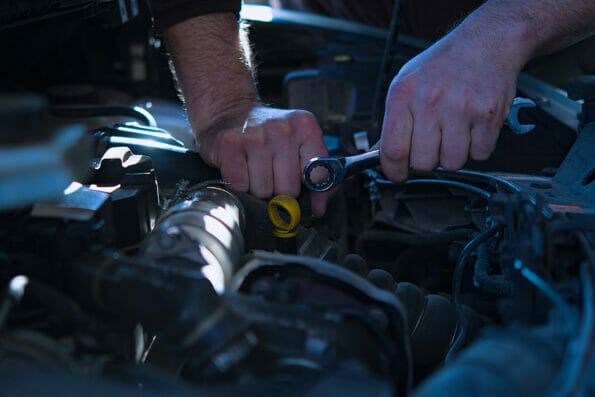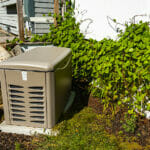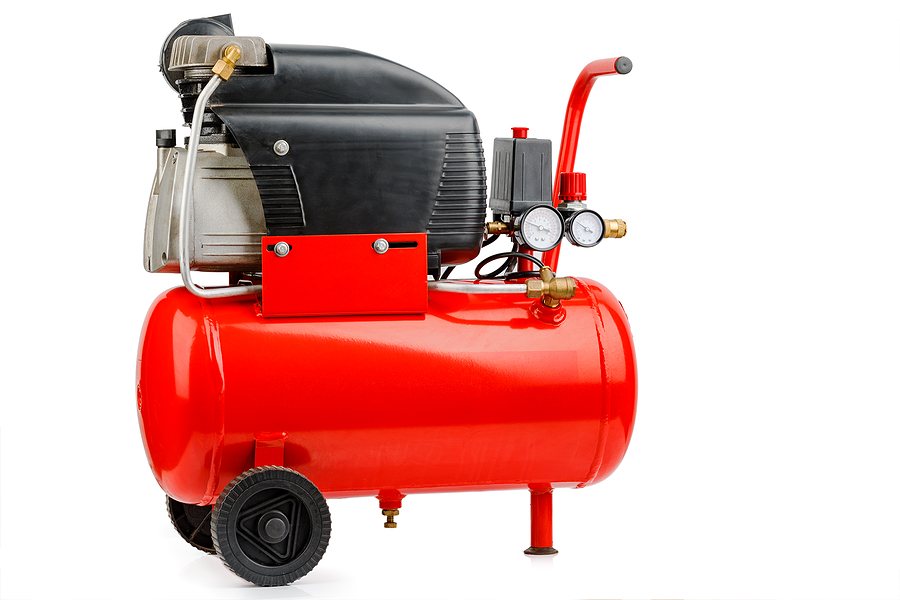A diesel engine is a special internal combustion engine commonly fitted into trucks, buses, heavy machinery, boats, and some cars. It differs from other engines in that instead of utilizing electric current or spark plugs to ignite the fuel mixture, it ignites its fuel through compression. The engine has three major components: structural parts, running parts, and the system.
Structural parts serve as a protective casing for the running parts. The running parts convert the combusted energy produced in the cylinder to mechanical power. On the other hand, the system is responsible for air supply, fuel injection and supply, turbocharging, exhaust removal, lubrication, and cooling.
And while diesel engines incur fewer problems than gasoline engines, general maintenance is necessary. Notably, most diesel vehicles perform more rough work, like pulling and carrying heavy loads. And without proper care and maintenance, the fuel injection system may clog up over time, resulting in a breakdown. Thus, taking good care of your diesel engine is imperative to ensure your vehicle functions optimally for its useful life. The following are seven ways to keep your diesel engine in good shape:
- Maintain Your Diesel Particulate Filter
What your diesel engine expels is as important as what’s injected into it. By checking your diesel particulate filter (DPF), you can address problems promptly. One common problem is black smoke or more smoke from your exhaust system than usual. This is usually caused by too much soot trapped in the DPF.
High concentrations of soot produced by the exhaust can cause engine wear. It increases acidity around the piston, where volatile gasses and high temperatures coexist. DPF parts clogged with soot may also fail sooner than expected. Such defects subsequently stifle engine performance.
Therefore, it’s crucial to properly maintain your DPF to ensure it can regenerate itself if it’s full of soot. Typically, DPF has a finite capacity to hold soot. So excess soot in the filter must occasionally be emptied or burned off to regenerate the DPF. DPF regeneration can happen in the following two ways:
- Passive regeneration: This occurs when a vehicle is taking a long drive at high speed, so the exhaust temperatures increase and cleanly burn off the soot stored in the filters.
- Active regeneration: Extra fuel is automatically injected into the system whenever the filter reaches its predetermined limit, usually around 45%. This causes a rise in temperatures which burns off the excess soot.
With that in mind, below are some ways to keep your DPF parts in top condition:
- Regularly go for 30- to 50-minute drives at sustained speed to enable passive regeneration
- Avoid frequently driving your vehicle on a low fuel level. That’s because your car can automatically avoid DPF regeneration to save on fuel.
- Use the correct type of oil. Note that low-quality oils may contain additives that can clog your filters.
Also, consider taking your vehicle to a qualified diesel technician for DPF cleaning. They usually clean clogged DPF parts through forced regeneration. This eliminates excess soot and enables the DPF to regenerate again correctly. Besides, if any signs indicate the DPF is no longer fit for service, the professionals can assist with DPF filter removal and replacement. Fortunately, technicians know DPF filter solutions, so they can help you shop for high-quality DPF parts from reputable vendors.
- Get Oil Changes
Oil is a crucial feature of any functioning engine. It acts as a lubricant, ensuring all running parts move smoothly. Ideally, without clean oil, vital pieces may grind together, leading to damage and, ultimately, expensive repairs. Thus, following the recommended oil change interval is crucial.
Here are more benefits of getting routine oil changes:
- It boosts engine efficiency: Oil may carry dirt and other harmful particles as it’s injected into the engine. As a result, sludge may develop and accumulate inside, reducing the efficiency of your diesel engine. So getting routine oil changes keeps your engine clean and thus boosts its performance.
- It extends your engine’s useful life: Changing oil frequently prevents quicker wear and tear on your engine, which can be caused by boosted friction. This ensures longer engine life.
- It cools engine components: Fresh oil maintains appropriate lubrication levels, so running parts create less friction and heat as they move at high speeds. This keeps engine components cool.
- It provides better gas mileage: Diesel engines run more effectively with clean oil and thus can utilize fuel more efficiently.
Notably, diesel engines may need more frequent changes than gasoline engines. However, changing the oil every 3,000 to 5,000 miles or every three months is generally safe. If you carry heavy loads or perform labor-intensive driving, aim to get your engine topped off at the 3,000-mile mark. For more instructions on oil changes, read the standard requirements provided by your car brand.
- Check And Clean Your Filters
Another effective way to keep your diesel engine running smoothly is to ensure the air and fuel filters are always clean. The air filter removes dirt, dust, and insects from the air so that what enters your engine is pure.
The difference between DPF and an air filter is that DPF is located on the exhaust line and collects dirt particles emitted by the engine. In contrast, an air filter is situated in the intake and filters the air entering your engine.
Notably, as the air filter collects more dirt, it becomes more difficult for air to pass through. As a result, there’ll be inadequate air supply, and the fuel mixture in the engine will be too fuel-rich, leading to inefficient combustion. As such, your engine may become less efficient, and you may experience problems, like engine misfires, hard starts, or rough idling.
Therefore, to improve efficiency, clean your air filters regularly. Manufacturers recommend doing this after every 10,000 to 12,000. However, consider fixing your filters more frequently if you reside in a dusty area. This way, you can ensure cleaner air mixes with diesel fuel to enable optimum combustion, which keeps your engine running more efficiently.
Additionally, a diesel engine has a fuel filter. It protects the fuel system by removing tiny dirt particles. And to prevent dirt from building up, it’s vital to clean the fuel filter regularly. A good rule of thumb is to clean and fix them every 10,000 to 12,000 miles. This keeps the injectors clean, ensuring more power and better gas mileage.
- Maintain Your Radiator And Coolant
To prevent damaging components of your diesel engine due to overheating, it’s imperative to maintain your radiator and coolant regularly. The coolant absorbs the heat generated from the engine, preventing potential failures related to overheating. On the other hand, the radiator releases excess heat from the engine to the air while taking in cool air.
Therefore, since all the heated coolant goes through the radiator, it might wear down over time. As the tubes weaken, they may crack and leak the heated coolant. As a result, the coolant will not circulate efficiently, leading to a spike in temperatures and overheating. To prevent this, it’s imperative to perform regular radiator checks to identify potential problems and fix them before they escalate. For example, if you notice any cracks in your radiator, replacing it is a good idea.
In addition, note that the coolant can become acidic if it runs through your system for long. Thus, as you inspect and maintain your radiator, flush out your coolant. You’re advised to do this every 50,000 miles to keep your system in good condition.
- Ensure Extra Care During Winter
During winter, it’s likely that your filters may get clogged, preventing optimal flow and subsequently disabling your engine. Clogging mostly happens when your tanks are partially filled. That’s because condensation can form, blocking your fuel filter and restricting the flow of diesel fuel. Also, fuel gelling occurs in freezing temperatures. Lower temperatures cause diesel fuel to solidify into a gel-like or waxy substance. As a result, fuel can no longer be effectively pumped or filtered through the engine.
Thus, paying special attention to your engine during winter is necessary. Ensure you fill your tank to its fullest whenever you fuel your vehicle at the gas station. Also, don’t leave your car in the cold for too long, particularly if the tank isn’t filled. Furthermore, consider using diesel fuel additives to reduce the risks of fuel gelling.
- Use The Right Fuel
Poor-quality fuel may contain impurities or too much debris, which can get into your fuel injectors and cause clogging. So choose the best-quality fuel to keep your fuel injectors in top condition and ensure your diesel engine operates at peak efficiency. Diesel engines require diesel fuel to run smoothly.
- Get a Diagnostic Test
Remember to ask your diesel engine mechanic for a diagnostics test when you go for any diesel repairs. This entails a thorough inspection of your diesel engine and its components to determine if there are any other defects. Doing this lets you address all problem areas at once and avoid frequent visits to the repair shop.

Conclusion
Taking good care of your car prevents frequent damage, reducing your trips to the mechanic. Ideally, your vehicle is one of your significant investments, so you’d want to ensure it performs as best as possible. Particularly, the engine is the heart of your vehicle. So regular diesel engine maintenance ensures your car remains in optimal condition for many years. The above are helpful tips to keep your diesel engine running smoothly. Contact a professional diesel engine technician for more information on maintaining your diesel engine.
William Smith
William Smith is a diesel engine mechanic based in California. He helps car owners maintain their diesel vehicles and has been doing this for over 12 years. William is married with four children and spends his free time at the gym working on his body goals.
Image Source: BigStockPhoto.com (Licensed)
Related Categories: Cars & Vehicles, Reviews








